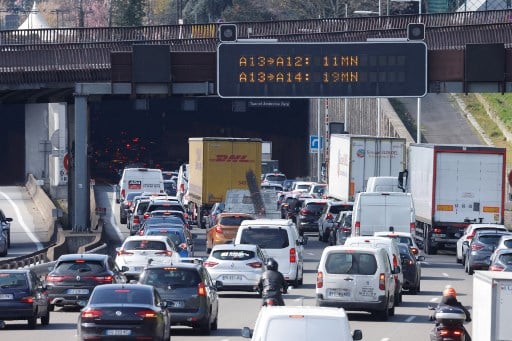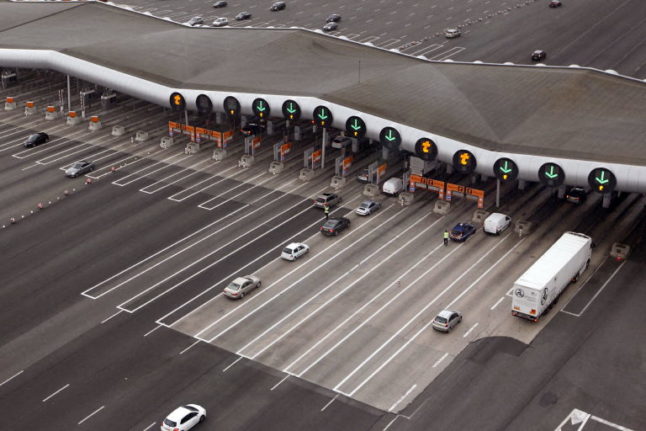French road authorities hope to get rid of physical tolls on the motorways between Paris and Normandy by the end of 2024, with the aim of speeding up journey times and reducing CO2 emissions.
SANEF, a private company which acts as the road management authority for northern and eastern France, announced on Wednesday that the A13 and A14 roads would have no physical barriers where drivers have to pay, by the end of 2024.
Instead, drivers will be detected by cameras and debited automatically for using the roads if they have registered an account. If not, they will have to pay online, by telephone or at a toll booth on another motorway.
The aim of this initiative, which has been trialled on the A4 motorway since 2019, is to avoid traffic jams on the roads.
For people driving right-hand drive cars, there is an added advantage – they will no longer have to reach awkwardly across the passenger seat to make a payment.
READ MORE How to swap your UK driving licence for a French one under the new system
SANEF has promised “faster journey times, savings on petrol and reductions of CO2 emissions in the atmosphere.”
Currently, drivers are required to stop at four different times at toll booths between Paris and Deauville and five between Paris and Caen. The A13 is notorious for appalling traffic jams on a Sunday afternoon and evening.
The removal of barriers, to create a so-called “free flow” system, will be rolled out on other SANEF managed-roads up until 2027, at the cost of some €120 million. The company says that this will free up 28 hectares of land (about the size of 40 football pitches) for nature.
To help pay for this, road tariffs will rise by 0.22 percent for a three year period starting on February 1st 2022.
READ MORE Automatic braking system to be installed in cars in France from 2022
SANEF has been trialling a barrier-free road with a tele-payment system along the A4 motorway since 2019.
France lingers behind many other countries, including the UK, Ireland, Norway, Sweden, South Africa and Chili, that have already implemented free flow payment systems along a portion of their motorways.
Another road operator, Eiffage, plans to introduce similar technology along the A79 road, which will run between Montmarault and Digoin, two communes in the centre of France, in Autumn 2022.



 Please whitelist us to continue reading.
Please whitelist us to continue reading.
Member comments